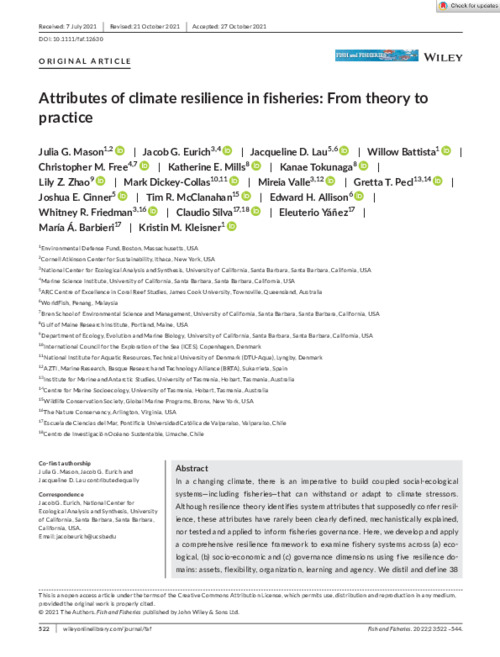Attributes of climate resilience in fisheries: From theory to practice

In a changing climate, there is an imperative to build coupled social-ecological systems—including fisheries—that can withstand or adapt to climate stressors. Although resilience theory identifies system attributes that supposedly confer resilience, these attributes have rarely been clearly defined, mechanistically explained, nor tested and applied to inform fisheries governance. Here, we develop and apply a comprehensive resilience framework to examine fishery systems across (a) ecological, (b) socio-economic and (c) governance dimensions using five resilience domains: assets, flexibility, organization, learning and agency. We distil and define 38 attributes that confer climate resilience from a coupled literature- and expert-driven approach, describe how they apply to fisheries and provide illustrative examples of resilience attributes in action. Our synthesis highlights that the directionality and mechanism of these attributes depend on the specific context, capacities, and scale of the focal fishery system and associated stressors, and we find evidence of interdependencies among attributes. Overall, however, we find few studies that test resilience attributes in fisheries across all parts of the system, with most examples focussing on the ecological dimension. As such, meaningful quantification of the attributes’ contributions to resilience remains a challenge. Our synthesis and holistic framework represent a starting point for critical application of resilience concepts to fisheries social-ecological systems.
Permalink
Date Available
Type
Publisher
ISSN
1467-2960,1467-2979
Copyright
CC-BY-4.0
Research Themes
Topics
Language